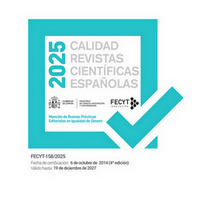Negotiation, consensus and political community in the foundation of Castilla del Oro’s early Sixteenth century cities
DOI:
https://doi.org/10.24197/ihemc.38.2018.131-160Keywords:
city, jurisdiction, power, political practices, communityAbstract
City foundation is a classic topic of Spanish American historiography. However, the approach to this theme has traditionally been focused on the centrality of norms and instructions from the Crown and the main role played by governors and captains in the creation of new cities. This paper, that deals with Castilla del Oro (roughtly present-day Panama) in the early 16th century, offers an alternative to those narratives, by focusing on the role played by political communities in the negotiation of the foundation’s legitimacy. In addition, this work emphasizes the importance of political practices over theories and instruction for the negotiation with the indigenous inhabitants of the settlement places and the transference of power. In conclusion, this article aspires to build a narrative that breaks with the center/periphery dichotomy to explain the creation of political spaces in the Spanish Monarchy and to explore instead everyday practices as well as the limits to the Castilian political system´s flexibility.
Downloads
Downloads
Published
Issue
Section
License
All the articles published in Investigaciones Históricas, época moderna y contemporánea will have a Creative Commons Attribution 4.0 International License (CC BY 4.0).
The journal allows the authors to retain publishing rights. Authors may reprint their articles in other media without having to request authorization, provided they indicate that the article was originally published in the journal Investigaciones Históricas, época moderna y contemporánea.



